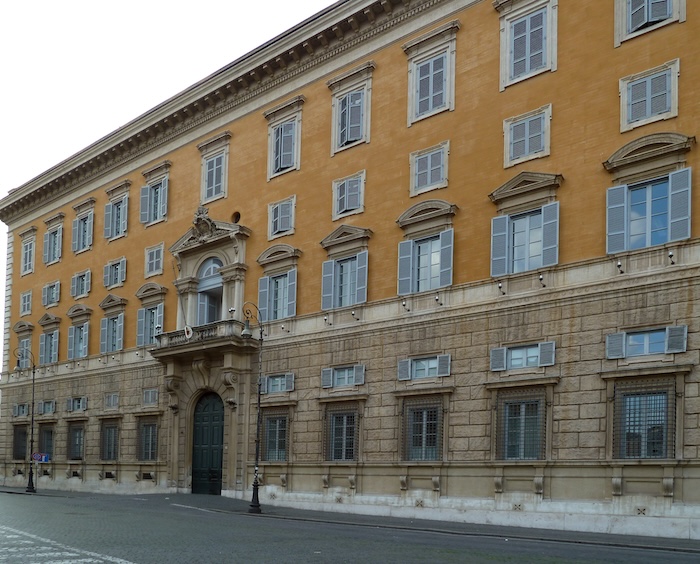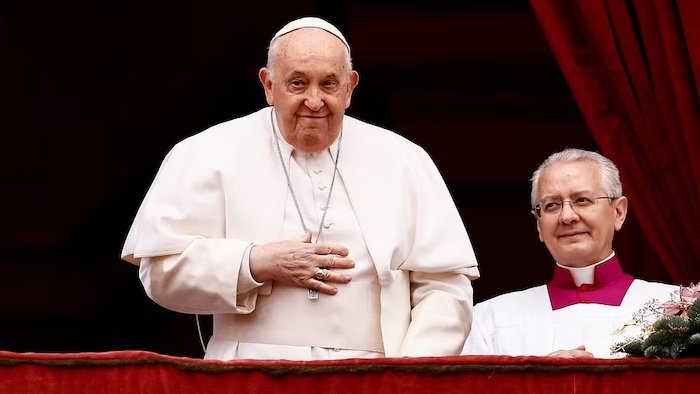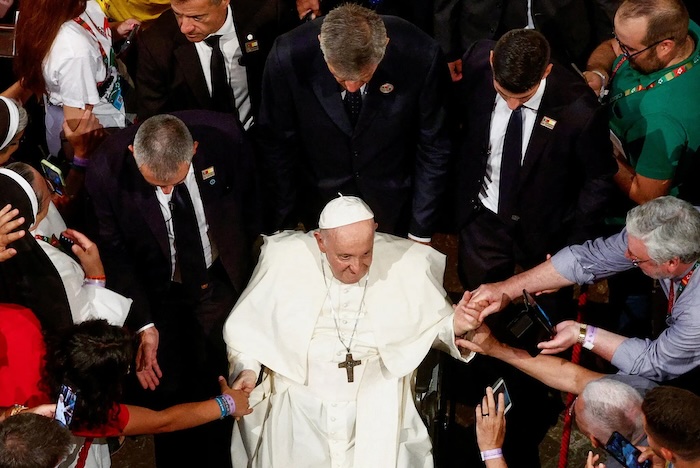— Many bishops issued clarifications following local reaction to the document, but these varied considerably in their explanation of the text.

By Patrick Hudson , Munyaradzi Makoni
Bishops across the world have issued responses to last week’s publication of a Vatican document on blessings for couples in “irregular” relationships, Fiducia Supplicans.
Numerous bishops, particularly in Europe and the US, welcomed the document’s “new idea” of blessings, though many emphasised that it did not provide approval for any “irregular” situation, including same-sex couples.
The document’s chief author Cardinal Víctor Fernández, the prefect of the Dicastery of the Doctrine of the Faith (DDF), said that Fiducia Supplicans recognised “the possibility of blessing couples in irregular situations and same-sex couples without officially validating their status or changing in any way the Church’s perennial teaching on marriage”.
Many bishops issued clarifications following local reaction to the document, but these varied considerably in their explanation of the text.
The Archbishop of Salzburg Franz Lackner, who heads the Austrian bishops’ conference, told the public broadcaster Österreichischer Rundfunk that it meant that priests “can no longer say no” when asked for a blessing by any couple.
He expressed “joy” at the recognition that “love, loyalty, and even hardship are shared with one another” in irregular couples.
Lackner’s German counterpart, Bishop Georg Bätzing of Limburg, similarly emphasised that the document “points to the pastoral importance of a blessing that cannot be refused upon personal request”, while in France the Archbishop of Sens and Auxerre Hervé Giraud said that it promotes “another idea of blessing, a blessing of growth and not a blessing of pure recognition”.
“I myself could give a blessing to a same-sex couple, because I believe it’s based on a beautiful idea of blessing, according to the Gospel and the style of Christ,” Archbishop Giraud told La Croix.
“Pope Francis is trying to move away from the simple ‘permit-prohibit’ to place people under God’s gaze in order to lead them back to safer paths. Blessing opens these safer paths.”
In the Philippines, the president of the bishops’ conference Bishop Pablo Virgilio David of Kalookan issued a statement welcoming Fiducia Supplicans on 20 December, saying it was “clear in its content and intent” and “does not require much explanation”.
This followed a notice of “episcopal guidance” issued by Archbishop Socrates B. Villegas of Lingayen-Dagupan on 19 December, detailing “categories of blessings” to which the DDF document had now added “blessings of mercy”.
He said that “asking for mercy is a request for pity and for remedy” and that “when a Catholic priest prays a blessing of mercy on a couple in an irregular situation…he is asking God to have pity on both of them and to give them the grace of conversion so that they can regularise their relationships”.
In a letter to all African and Madagascan bishops dated 20 December, Cardinal Fridolin Ambongo, president of the Symposium of Episcopal Conferences of Africa and Madagascar (SECAM), requesting their assistance in composing “a single synodal declaration, valid for the whole African Church” on Fiducia Supplicans.
“The ambiguity of [Fiducia Supplicans], which is open to many interpretations and manipulations, causes much confusion among the faithful and I believe that, as pastors of the Church in Africa, we must express clarity on this question in order to give a clear direction to our Christians,” he said.
Cardinal Ambongo’s letter came after African bishops had made a variety of responses to the document.
Malawi’s bishops published a four-point clarification, “having noted certain erroneous interpretations of this declaration that have generated interest, fears and worries amongst Catholics and people who look up to the Catholic Church for moral, spiritual and doctrinal guidance”.
It emphasised that Fiducia Supplicans upholds existing teaching on marriage and does not allow blessings on same-sex unions as such, concluding that “to avoid creating confusion among the faithful, we direct that for pastoral reasons, blessings of any kind and for same-sex unions of any kind, are not permitted in Malawi”.
Bishops in neighbouring Zambia issued a similar directive, saying that the document should be “taken as for further reflection and not for implementation in Zambia”.
In Cameroon, a statement signed by the bishops’ conference president Archbishop Fuanya Nkea of Bamenda condemned “semantic abuses designed to distort the value of realities and the true meaning of the notions of family, couple, spouse, sexuality and marriage”.
Declaring total opposition to homosexuality, it said that “differentiating between liturgical and non-liturgical contexts in order to apply the blessing to same-sex ‘couples’ is hypocritical” and forbid all such blessings.
Few other bishops on the continent issued such explicit prohibitions, though most emphasised that “you are blessing the people and not the union”, in the words of Bishop Matthew Kwasi Gyamfi of Sunyani, president of the Ghanaian bishops’ conference.
“In blessing persons, we do not bless the immoral actions they may perform but hope that the blessing and prayers offered over them as human persons will provoke them to conversion and to return to the ways of the Lord,” the Kenyan bishops’ conference said in its response.
A statement signed by the president of the Southern African Catholic Bishops Bishop Sithembele Sipuka of Umtata said: “The document makes it clear that it is not putting forward a change of doctrine about marriage to include people of the same sex.”
The statement said that Fiducia Supplicans “may be taken as a guide with prudence” and said the conference “will guide further on how such a blessing may be requested and granted to avoid the confusion the document warns against”.
Bishops in Burkina Faso made a similar commitment to further clarification in future.
In the US, many episcopal responses to Fiducia Supplicans were concerned with what Archbishop Samuel Aquila of Denver said was the failure of “the secular media to accurately report what was written in the document”.
He was typical in emphasising that such blessings “can never be seen as legitimising sin” and “should be done with discretion, preferably privately to avoid scandal and confusion”.
A response from the United States’ Conference of Catholic Bishops (USCCB) focused on the “distinction between liturgical (sacramental) blessings, and pastoral blessings, which may be given to persons who desire God’s loving grace in their lives”, as articulated in the document.
“The Church’s teaching on marriage has not changed, and this declaration affirms that, while also making an effort to accompany people through the imparting of pastoral blessings because each of us needs God’s healing love and mercy in our lives,” it said.
In a statement to his Archdiocese of Boston, Cardinal Seán O’Malley emphasised that the Pope “has not endorsed gay marriage” but provided “clarity to how to impart [God’s] blessings”.
“Priests imparting these blessings need to be careful that it should not become a liturgical or semi-liturgical act, similar to a sacrament,” he said.
Cardinal Blase Cupich of Chicago said that the approach espoused in Fiducia Supplicans “will help many more in our community feel the closeness and compassion of God”.
Bishop David Walkowiak of Grand Rapids, Michigan, said that the document “reaffirms an appropriate pastoral response to people who express a request for these prayers”.
“These spontaneous, private prayers and blessings are given routinely. They are nothing new,” he said.
Bishop Robert Barron of Winnona-Rochester, in his capacity as chairman of the USCCB Committee on Laity, Marriage, Family Life, and Youth, issued a statement affirming that “the declaration does not constitute a ‘step’ toward ratification of same-sex marriage nor a compromising of the Church’s teaching regarding those in irregular relationships”.
It was, he said, “very much congruent with Pope Francis’s long-held conviction that those who do not live up to the full demand of the Church’s moral teaching are nevertheless loved and cherished by God and invited to accept the Lord’s offer of forgiveness”.
In a letter to the priests of the Dioceses of Trondheim and Tromsø in Norway, Bishop Erik Varden OCSO said that their “ability to combine responsible theological intelligence with Chrisian charity and pastoral tact” was key to the request in Fiducia Supplicans for “pastoral sensibility”.
He noted the “sincerity, humility, and strength” of Catholics who ask for a blessing at Mass when they cannot receive communion as an instance of blessing individuals in irregular circumstances.
Bishop Varden said that the document provided criteria for the application of “pastoral blessings”, emphasising that they should be private without any “legitimising” intention.
Considering its reference to Scripture, he argued that “a Biblical blessing is rarely an affirmation of a status quo” but instead “confers a call to set out, to be converted”, outlining instances of Christ’s “manifested sternness” which “must count as paradigms of pastoral blessing”.
A response from the Polish bishops’ conference, while not criticising the DDF, expressed serious reservations about the blessings, saying that “avoiding confusion and scandal is virtually impossible” when blessing same-sex couples.
The statement made extensive reference to the Vatican’s 2021 responsum which excluded any possibility of blessing same-sex unions, concluding that “individual people living in complete abstinence” could be blessed “in a private way, outside the liturgy and without any analogy to sacramental rites”.
The Roman Catholic bishops of Ukraine issued a statement on 19 December in response to “a storm of reactions and misunderstandings regarding questions of morality and doctrine” in Fiducia Supplicans.
They criticised its “ambiguous wording”, finding that “merciful acceptance of [a sinner] and express disapproval of his sin is not very clearly visible in the text”. They also argued that same-sex relationships and irregular heterosexual relationships should not be considered in the same way.
“What we missed in the document is that the Gospel calls sinners to conversion, and without a call to abandon the sinful life of homosexual couples, the blessing can look like approval,” the statement said.
The head of the Ukrainian Greek Catholic Church said that Fiducia Supplicans had “no legal force” on Ukrainian Catholics, as it “interprets the pastoral meaning of blessings in the Latin Church, not the Eastern Catholic Churches”.
In a communiqué on 22 December, Major Archbishop Sviatoslav Shevchuk said that his Church had a distinct understanding of blessings, drawn from “its own liturgical, theological, canonical, and spiritual heritage”.
Within this tradition, “the blessing of a priest or bishop is a liturgical gesture that cannot be separated from the rest of the content of the liturgical rites” and “has an evangelising and catechetical dimension [so] can in no way contradict the teaching of the Catholic Church about the family as a faithful, indissoluble, and fertile union of love between a man and a woman”.
“Pastoral discernment urges us to avoid ambiguous gestures, statements, and concepts that would distort or misrepresent God’s word and the teachings of the Church,” the communiqué concluded.
A statement from the Archdiocese of Astana in Kazakhstan was exceptional in its explicit criticism of Pope Francis, claiming that he had departed from the “truth of the Gospel” and asking him “to revoke the permission to bless couples in an irregular situation and same-sex couples”.
The statement, signed by Archbishop Tomash Peta and his auxiliary Bishop Athanasius Schneider, warned of “the great deception and the evil that resides in the very permission to bless [such] couples”, calling such a blessing “a most serious abuse of the Holy Name of God”.
“Therefore, none, not even the most beautiful, of the statements contained in this declaration of the Holy See can minimise the far-reaching and destructive consequences resulting from the effort to legitimise such blessings.”
Archbishop Peta and Bishop Schneider said that these would make the Church “a propagandist of the globalist and ungodly ‘gender ideology’” and prohibited any such blessings in the archdiocese.
Cardinal Gerhard Müller, the former prefect of the Congregation for the Doctrine of the Faith (now the DDF), published a lengthy criticism of Fiducia Supplicans, denying the validity of “pastoral blessings” bestowed by priests as distinct from Church teaching – and calling it “a sacrilegious and blasphemous act” for a priest to attempt such.
“Given the unity of deeds and words in the Christian faith, one can only accept that it is good to bless [irregular] unions, even in a pastoral way, if one believes that such unions are not objectively contrary to the law of God,” he said.
“It follows that as long as Pope Francis continues to affirm that homosexual unions are always contrary to God’s law, he is implicitly affirming that such blessings cannot be given.”
Amid such reactions, comment from the Vatican focused on the document’s basis in tradition. Prof Rocco Buttiglione of the Pontifical Academy of Social Sciences wrote on Vatican News that Fiducia Supplicans was “almost a revolution” but “every authentic revolution is also simultaneously a return to the origins, the missionary presence of Christ in human history”.
He said that the blessings had a “paternal” character which provided “a response to a specific pastoral urgency of our time”, recognising the “rebellious belonging” of many who are bonded to the Church.
Cardinal Fernández maintained that his document wholly affirmed the Church’s teaching on marriage, but said that “does not prevent us from making a gesture of paternity and closeness, otherwise we can become judges who condemn from a pedestal”.
He told US-based news site The Pillar that the “pastoral blessing” outlined in the text was like that offered to any sinner, emphasising the need “to grow in the conviction that non-ritualised blessings are not a consecration of the person, they are not a justification of all his actions, they are not a ratification of the life he leads”.
“I do not know at what point we have so exalted this simple pastoral gesture that we have equated it with the reception of the Eucharist,” he said. “That is why we want to set so many conditions for blessing.”
Fiducia Supplicans prohibits liturgies for the “spontaneous” blessings of couples, and Cardinal Fernández explained that “ritualised forms of blessing irregular couples” were “inadmissible”, specifying Germany as an instance where bishops needed “clarifications” from the DDF.
Regarding the ambivalent or hostile reception of the document in Africa and elsewhere, he said that “prudence and attention to local culture could admit different ways of application, but not a total denial of this step being asked of priests”.
He said he recognised the concerns of bishops in Africa and Asia, particularly in countries where homosexuality is illegal, and emphasised that each was responsible for the document’s interpretation within his diocese.
“What is important is that these bishops’ conferences are not holding a doctrine different from that of the declaration signed by the Pope, because it is the same doctrine as always, but rather they state the need for study and discernment, in order to act with pastoral prudence in this context,” the cardinal said.
Pope Francis reportedly said that the document insisted that “people must be welcomed” in the Church but it did not affect the doctrine of marriage.
“It does not involve the sacrament of marriage. It doesn’t change the sacrament,” he told priests at a meeting in Rome on 21 December, according to Fr Antonio Vettorato FdCC.
Complete Article ↪HERE↩!









